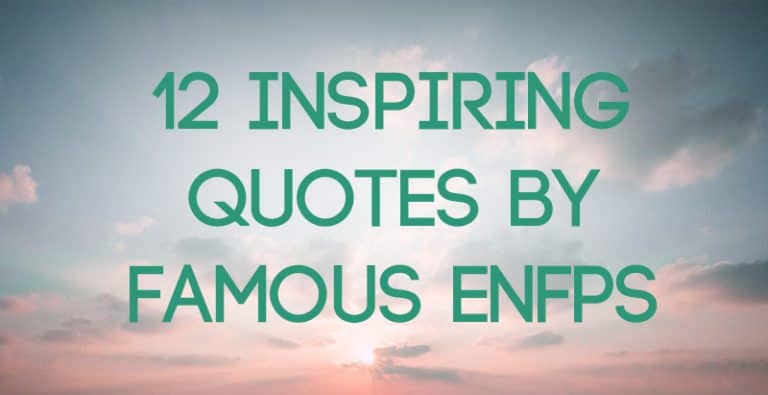Dominant-Inferior Dynamics in EFJ and ITP Personality Types
Today we’re going to explore the unique relationship between the dominant and inferior functions of four personality types: The ENFJs, ESFJs, INTPs, and ISTPs. These four types both value Extraverted Feeling (Fe) and Introverted Thinking (Ti). While ExFJ types have dominant Extraverted Feeling and inferior Introverted Thinking, IxTP types have dominant Introverted Thinking and inferior Extraverted Feeling.
In order to paint a picture of how you experience the functions, we’re going to use a metaphor for the functions. The dominant function will be portrayed by the favorite older brother in the family, while the inferior function will appear more like the least-favored younger sibling. Don’t worry, this metaphor isn’t meant to imply that older or younger siblings are better or worse than each other – it’s simply a story to help cement the type dynamics in place.

Let’s get started!
Table of contents
Estimated reading time: 9 minutes
ENFJs and ESFJs – Extraverted Feeling (Fe) and Introverted Thinking (Ti)
If Extraverted Feeling (Fe) is in the dominant position, its observations are prioritized and valued. This means connection, shared harmony, and consideration for peoples’ feelings are of the utmost importance to this type. This also means that ExFJs try to share their values with others and influence larger groups to uphold those values. Sometimes this can be a good thing; Martin Luther King Jr., for example, was an ENFJ who stood up for civil rights and shared his beliefs and vision with the world. Unhealthy ExFJs, in contrast, can become pushy and cliquey, ostracizing people who don’t subscribe to their values. Either way, for the ExFJ, Extraverted Feeling is the favored older sibling of the psyche. It’s respected, trusted, and given plenty of space to speak and have influence. Fe at an average to healthy level is considerate, empathetic, conscientious, and skilled at understanding and connecting with others.
Marie-Louise von Franz wrote, “If one goes to a luncheon party with an extroverted feeling type, she (or he) is capable of saying things like “What a nice day it is today, I am so glad to see you again, I haven’t seen you for a long time!” And they really mean it! With that, the car is lubricated, and the party goes. One feels happy and warmed up. They spread a kind of atmosphere of acceptance, and it is agreeable…They make those in their surroundings feel wonderful, and in the midst of that they swim along happily and create a pleasant social atmosphere.” – Lectures on Jung’s Typology
Introverted Thinking, in contrast, is akin to the least-favored younger sibling. This function sprawls itself on the couch, pointing out logical inconsistencies in things Fe (or others) say, calling Fe a pushover, and telling him that maybe he should stop caring what others think and be more skeptical and questioning. Fe, irritated by Ti’s presence but nonetheless wanting to heed his advice, often feels torn between his own views and the judgments of Ti. He wants a harmonious connection between himself and others but gets distracted at times by Ti’s constant nitpicking.
A Glimpse at Extraverted Feeling:
- Considers the values and feelings of others
- Strives for authentic connection
- Prizes tact, courteousness, and conscientious behavior
- Wants to teach and inspire shared values with others
- Is highly aware of the emotions of others
- Tries to maintain an atmosphere of harmony unless the harmony is in conflict with the needs and feelings of others in the long-run
- Notices and considers societal and cultural values
- Pays attention to what people need, emotionally or physically
But What Does Ti Bring to the ExFJ?
Ti is the function that reminds the ExFJ to consider the logical consistency of their beliefs, choices, and judgments. “You’re promoting this value system, but why? Is this what you really believe? Should you scrutinize it further?” Ti urges Fe to slow down, analyze, and check their views for internal consistency and accuracy. Ti reminds the ExFJ when they’re being hypocritical, speaking about things they haven’t critically assessed, or when they need more data before speaking.
Fe, so confident and charismatic, pauses and wonders whether Ti’s arguments hold weight and why he can’t go about giving his advice in a more thoughtful manner. Sometimes Ti’s criticisms are withering to the ExFJ. “You’re not smart enough. You don’t have enough facts. You certainly shouldn’t be speaking on this subject because you don’t’ have enough expertise and you need to analyze more.” When this happens, the entire psyche of the ExFJ can become lost in despair, feeling worthless or insignificant.
Fe needs Ti just as Ti needs Fe, but Fe should not allow itself to be “swallowed up” by Ti. Ti is, after all, the inferior function of the ENF. As a result, its judgments and criticisms can be immature or murky in nature. When Fe is over-worked and over-relied upon, it can become exhausted and “check out” of the psyche for a time. Ti, as the remaining judging function, is thrilled to take charge of the personality of the ExFJ. He doles out criticisms at the ExFJ, convinces the ExFJ to read the entire encyclopedia in order to back up their claims, and gets them lost in an endless loop of analysis and critiquing and skepticism that ends up going nowhere.
ENFJs and ESFJs should practice using Ti during times when they are calm, relaxed, and relatively stress-free. When this happens, they develop a better relationship with Ti, their thinking becomes clearer, and they have less unhealthy episodes where Ti rampages through their psyche causing problems.
Ways for ENFJs and ESFJs to Tap into Ti (without getting exhausted):
- Examine your behaviors, beliefs, and values. Look at the roots of those beliefs. Which beliefs do you follow that might have irrational or disconnected logic? Is there any way you can verify the accuracy of those things?
- Write an article or have a conversation where you focus on using the most precise words or phrases possible. Eliminate unnecessary words or “filler.” Keep in mind, people who know you well might assume you’re angry at them because it’ll be a departure from how you typically speak. Maybe try this with a trusted friend who knows what you’re practicing.
- The next time someone makes an illogical argument, look for ways that people are conflating two things that are actually separate. Ask them to explain how the two things relate.
- Examine a puzzle, brain-teaser, or strategy game and see if you can figure out the underlying process and logic behind the game.
INTPs and ISTPs – Introverted Thinking (Ti) and Extraverted Feeling (Fe)
When Introverted Thinking (Ti) is in the dominant position, its positions and judgments are given weight and attention. As a result, IxTP personality types are often analytical, skeptical, logic-driven, and curious. They create vast internal taxonomies of how things work and aim to be logically consistent in their principles, choices, and actions. In our metaphor, Ti is the revered older sibling of the household. He puts on his glasses and rifles through encyclopedias, taking mental notes of how the world is composed and everything in it. The psyche admires this older brother and makes sure his space is quiet and well-kept.
In contrast, Extraverted Feeling seems like the gregarious younger brother that bursts into the library with a dozen friends, knocking over books, handing out wine, and issuing a flurry of thoughts about how everyone ELSE is feeling. “Hey! That book looks interesting, but grandma sure looks uncomfortable over there, shouldn’t she have a blanket?” “Hey….you, there! Do you see that your dad is bored with this topic of conversation? Maybe we should switch gears!” Little brother Fe is both charming and obnoxious to you. He wins you over with a sweet smile, but when you try to be like him your words come out awkward and halting.
A Glimpse at Introverted Thinking:
- Looks for mental organization and order
- Enjoys classifying and organizing things in detail
- Creates a mental taxonomy of how things work
- Looks for accuracy over efficiency
- Aims for logical consistency
- Trusts its own logic over the logic of assumed “experts”
But What Does Fe Bring to the IxTP?
Fe helps Ti to see broader, rather than deeper. When Ti gets hyper-fixated on the nitty-gritty logic of a problem, Fe helps Ti to see how the logic will affect people. Fe helps Ti to apply its logic to interpersonal dynamics: peacemaking, diplomacy or working amicably with family and friends. Ti helps the IxTP to stay true to their individual principles and their logical theories and perspectives. Fe helps them to branch out and form warm connections with others. It’s the quiet voice that says, “You might be right, but how can you win this argument without polarizing people?”
Ti needs Fe just as Fe needs Ti. A healthy IxTP has a healthy respect for Fe and allows this “obnoxious younger brother” into the home for short spurts of time when he’s feeling relaxed. That said, it’s important for Ti not to get overwhelmed by Fe. Fe is, after all, inferior to the IxTP and thus can behave in extremes or in immature ways. During times of chronic or extreme stress, Ti might take a long nap and give Fe the keys to the psyche. “I need a break. You’re in charge. Don’t mess things up too badly.” Fe, thrilled at this rare opportunity, tries to fix up all the interpersonal issues going on with the IxTP. He asks friends over and tries to give all his relationships first priority. The only problem is that because he’s not had a lot of practice with this, he can get out of control. When this happens, he causes the IxTP to hyper-fixate on relationships, stress about where he stands with people, and obsess over social standing or how others feel about him. He might feel hyper-emotional, insecure, and out of sorts.
Ways for INTPs and ISTPs to Tap Into Fe (Without Getting Exhausted):
- People watch. Notice the ways people interact with each other; the body language they use to express themselves, the things that make them happy or cause a negative reaction.
- Play the “question game” with people and use this opportunity to get to know them through self-disclosure. Ask, and answer, personal questions like, “What makes you happy? What makes you sad?” A game like The Ungamecan help you come up with questions.
- When you’re in a group of people, look around to see if anyone seems excluded. Try to imagine ways to include them.
- Take some time each day to text, email, or speak to someone and ask how they are doing.
What Are Your Thoughts?
Did you enjoy this article? Do you have any insights or perspectives to share? Let us know in the comments!
Find out more about your personality type in our eBooks, Discovering You: Unlocking the Power of Personality Type, The INFJ – Understanding the Mystic, and The INFP – Understanding the Dreamer. You can also connect with me via Facebook, Instagram, or Twitter!









One Comment